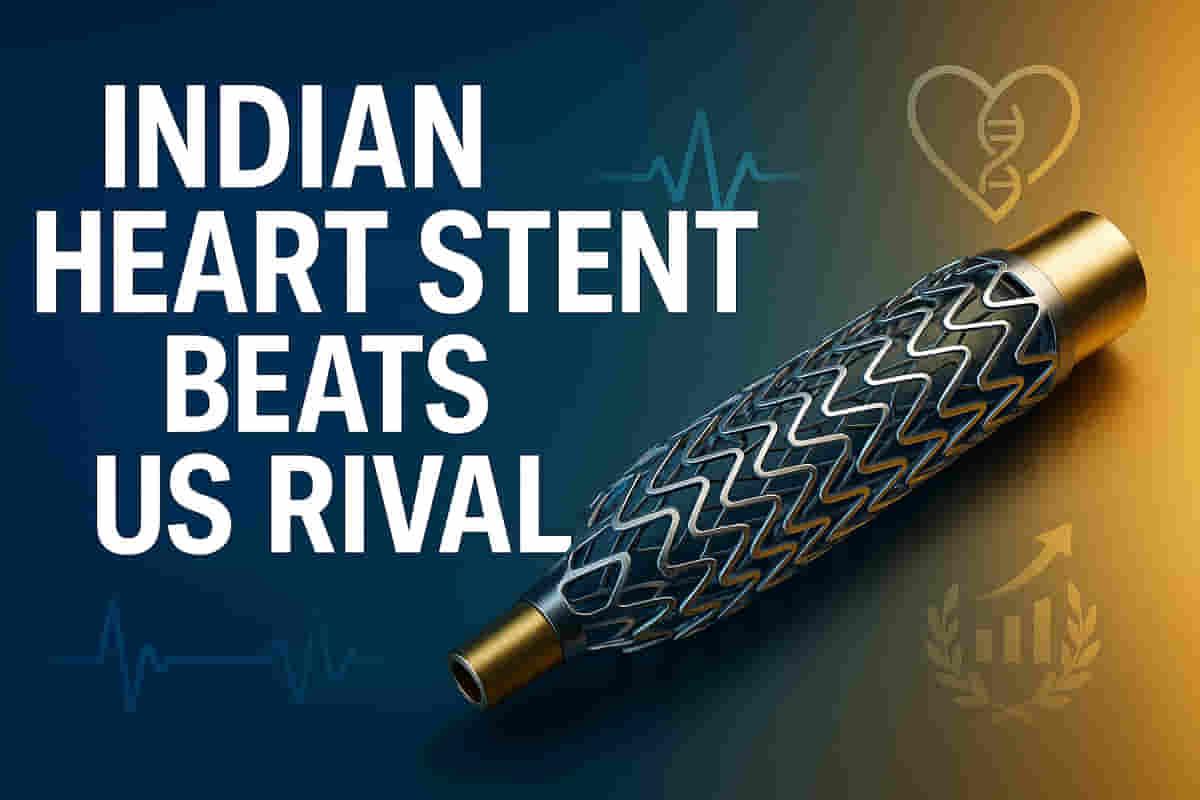Indian Heart Stent 'Supraflex Cruz' Outperforms US Rival in High-Risk Patients
Healthcare/Biotech
|
30th October 2025, 9:32 AM

▶
Short Description :
Detailed Coverage :
An important global recognition has been achieved by an Indian medical innovation. The Supraflex Cruz, a new generation heart stent manufactured in India, has shown a lower failure rate than the US-made international market leader, Xience, specifically in high-risk patients.
During a global conference of cardiologists, Dr. Upendra Kaul, Chairman and Dean of Delhi's Batra Hospital, presented the findings from the TUXEDO-2 trial. This rigorous trial, conducted across 66 Indian cardiology centers, focused on complex patient groups, including those with diabetes and advanced multi-vessel disease, with 80% of participants having triple vessel disease.
The results for the Indian device were highly positive, proving that Supraflex Cruz was non-inferior to Xience, the established international standard. The data revealed a significantly lower Target Lesion Fail (TLF) for the Indian stent. TLF measures serious adverse outcomes like cardiac death, target vessel myocardial infarction (MI), and the need for repeat procedures. Dr. Kaul also noted that the Indian stent, made by a company in Surat, showed a numerically lower rate of heart attacks within one year. These results were praised at the conference as an example of Indian technical excellence in medical device manufacturing. The trial was led by Dr. Kaul, alongside Co-Chairman Dr. Sripal Bangalore and Project Director Dr. Priyadarshini Arambam.
Impact This achievement significantly boosts the reputation of Indian medical device manufacturing on a global scale. It opens doors for potential export markets and strengthens investor confidence in Indian healthcare innovation. The success could lead to increased investment in domestic manufacturing and research & development within the sector. Rating: 8/10
Difficult Terms: Target Lesion Fail (TLF): A measurement in heart studies that tracks serious problems like heart attack or death related to the treated artery. Cardiac Death: Death caused by heart-related issues. Myocardial Infarction (MI): Commonly known as a heart attack, where blood flow to the heart muscle is blocked. Multi-vessel disease: A condition where blockages are present in more than one of the heart's main arteries. Non-inferior: Means that a new treatment or device is not worse than the current standard, within acceptable limits.